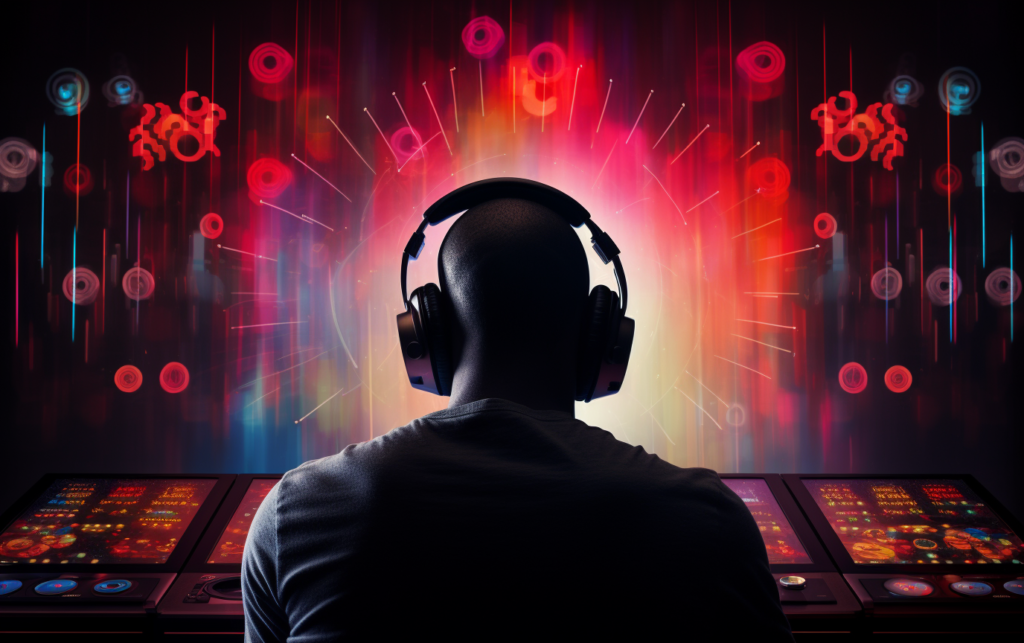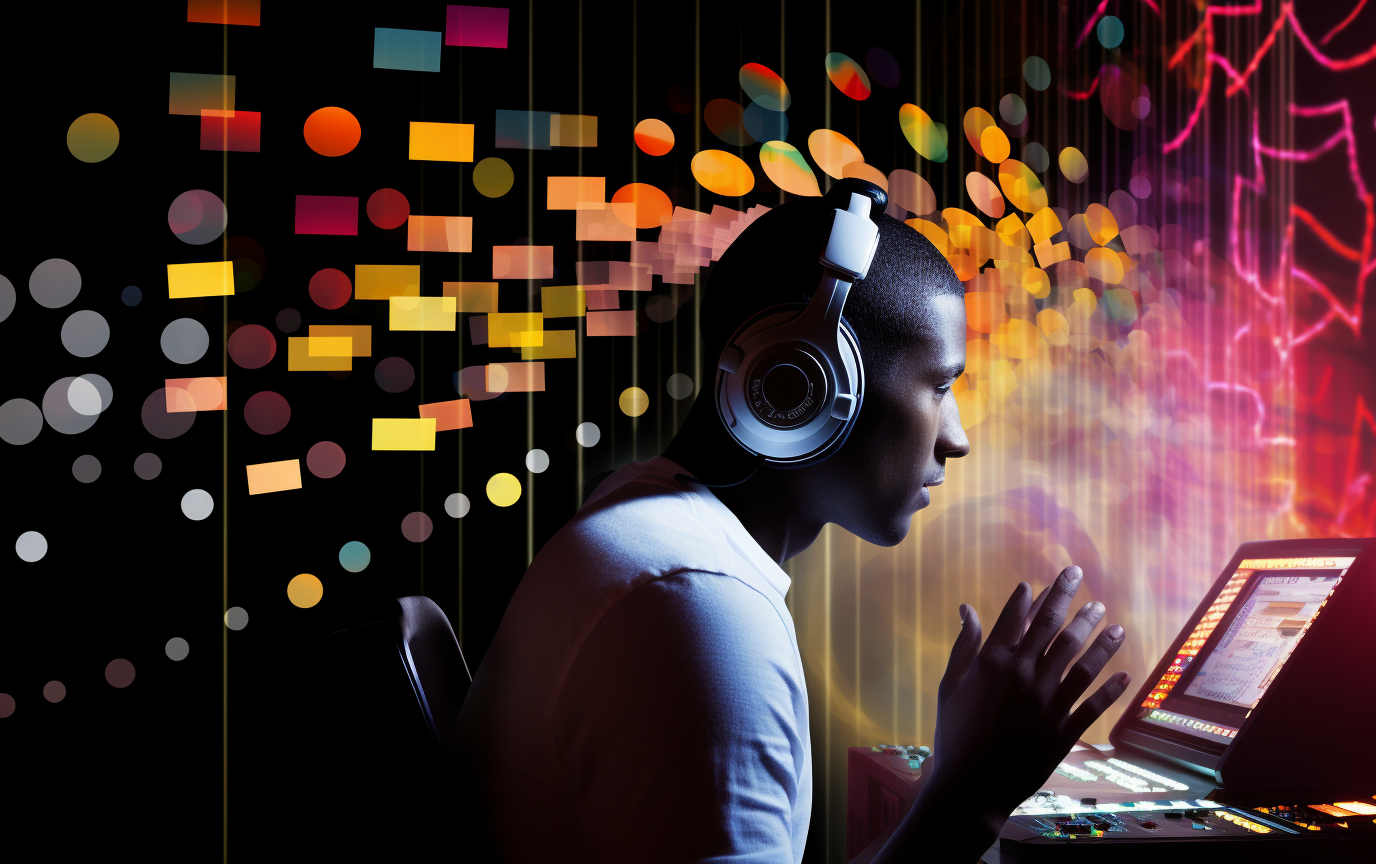Introduction: The Connection Between Music and Gambling Psychology
The sounds and atmosphere of a casino floor are specifically designed to encourage betting and risk-taking. From the upbeat music to the ambient noise of slot machines, everything is crafted to stimulate certain psychological responses in gamblers. Music in particular has been shown in numerous studies to directly impact gambling behaviors and cognitive functions.
Understanding the psychology behind how music influences betting can provide insight into why casinos utilize certain soundtracks and audio cues. It can also help casual and professional gamblers alike recognize how external sensory factors may sway their decision-making and affect their overall experience.
The Impact of Music on Emotions and Behavior
Research has demonstrated that music can profoundly impact moods, emotions, and behaviors. The tempo, genre, and volume of music triggers responses in the brain that stimulate neurotransmitter activity. Fast-paced songs with strong beats, for example, can energize listeners and induce excitement. Conversely, slow ballads often promote relaxation.
Music also activates the brain’s reward centers and releases dopamine, the neurotransmitter associated with pleasure and motivation. In the context of a casino, these neurological effects help explain why music can heighten enjoyment but also potentially cloud judgement.
The Role of Arousal in Gambling Behavior
Arousal refers to physiological and psychological stimulation. When arousal is heightened, people often take more risks and make impulsive decisions. Gambling naturally involves risk-taking already, so increased arousal can amplify this effect and lead to rash betting choices.
Music tempo is strongly linked to arousal levels. Several studies have shown that high-tempo music that is over 120 beats per minute (BPM) can increase heart rate, respiration, and skin conductivity. This intensifies arousal, making high energy music an effective catalyst for gambling environments trying to accelerate betting behaviors.
The Effect of Different Types of Music on Gambling Behavior
While fast, upbeat songs tend to amplify arousal, different genres of music have their own impacts as well. Research indicates that familiar music people enjoy evokes especially positive emotional states. This helps explain why casinos often play well-known pop and rock anthems. Hearing sing-along favorites activates reward centers and keeps gamblers comfortably stimulated.
Classical and soft lounge music, on the other hand, can have a mollifying effect that prolongs gambling sessions. Slower tempos around 60-80 BPM reduce arousal physiologically but also signal a more refined environment. This tempers impulsiveness while still promoting persistence in gambling.
The Connection Between High-Tempo Music and Intensified Gambling
Multiple studies have specifically analyzed how high-tempo music over 120 BPM influences real-world gambling behaviors:
In roulette players, fast music increased bets by 45% compared to slow music. Players also wagered on more risky gambles during uptempo songs.
Slot machine players had significantly faster rates of play during high-tempo music and popped in more money per minute than with slow background music.
Poker players reported more motivation and willingness to take chances when fast-paced songs were played during tournaments.
Across these experiments, fast music consistently upregulated arousal and triggered riskier, more impulsive betting choices. The tempo-arousal link appears to act almost subconsciously, as most participants were not outright aware of music’s effects.
For example, the popular Aviator game on Pari Match offers an exciting gambling experience with sky-high stakes. As an online slot machine game, Aviator uses audiovisual effects to immerse players in its aviation theme. Upbeat electronic music with energetic beats sets the tone, priming players for an adrenaline-filled session.
According to research on betting psychology, the 130 BPM tempo of Aviator’s soundtrack likely activates the brain’s arousal mechanisms. This gets players’ hearts pumping and stimulates an appetite for risky bets. The energetic music provides an intoxicating sonic background as the plane avatar steadily multiplies payouts to tempt players with bigger rewards.
Flashing lights and cockpit alarm sound effects add to the sensory experience of Aviator game. Studies show such visual and auditory cues capture attention and make games more inviting. The aviation aesthetics and terminology further emphasize the risky thrill-ride vibe. With its stimulating sights and sounds, Aviator exemplifies how an online betting game can leverage music, lighting, and theme to influence gambling behaviors.
The combination of familiar casino game elements mixed with aviation terminology and aesthetics provides an experience where players can get swept away in excitement. Just as atmospheric casino environments use soundscaping to immerse patrons, Aviator’s audio design engages players’ senses to encourage continued, intensified betting. Being aware of these mechanisms provides the insight to gamble smarter.
The Connection Between Slow Music and Prolonged Gambling Behavior
While fast music intensifies gambling behaviors, slow music has its own influential effects. A study examining slot machine players found that when casinos played slow background music around 50 BPM, gamblers:
Spent more time playing on a single machine.
Gambled for longer durations before taking breaks.
Rated themselves as more relaxed during slower songs.
This demonstrates that while slow music may reduce impulsiveness, it also lowers motivation to stop gambling. Gamblers feel calmer and often unconsciously get into a “zone” or flow state that prolongs play. Casinos leverage this with ambiance music to promote persistence.
The Combined Effects of High-Tempo Music and Red Lighting on Gambling Behavior
Music and lighting synergistically target the senses to shape gambling environments. One experiment directly tested this by observing roulette players under different conditions. Players gambled in sessions with:
- Fast-tempo music and red lighting
- Slow-tempo music and blue lighting
- No music and regular lighting
The sessions with stimulating fast music and arousing red lighting significantly increased the number of risks taken and amount of money wagered. The multi-sensory stimulation created an intensity that spurred impulsiveness and aggression in betting.
The Role of Light in Gambling Behavior
Beyond just influencing music effects, lighting itself also impacts gambling psychology:
Bright lights and color stimulation increase casino excitement, happiness ratings, and intent to gamble according to self-reports.
Flashing lights and illumination patterns capture attention and make games seem more inviting. This prompts more gambling activity.
Red light in particular elevates heart rates, which ties into arousal mechanisms. Red also enhances emotionality compared to blue light.
By tuning lighting variables, casinos can work synergistically with soundtracks to optimize customer experience and gambling behaviors. Multi-sensory environments merge to create atmospheres of immersion.
The Connection Between Music and Decision-Making During the Iowa Gambling Task
The Iowa Gambling Task is a psychological assessment used to study decision-making under conditions of risk and uncertainty. Research using this tool provides direct evidence that music alters the choices people make when rewards and penalties are both in play:
During high-tempo music, participants in the task made riskier deck selections that offered big rewards but even bigger losses. Their overall net scores worsened.
With slow background music, participants made significantly safer, more conservative choices that resulted in positive overall net returns.
No music control groups scored in-between the two music conditions.
This demonstrates that music tempo and physiological arousal transfer over to actual reward-based decision tasks and can undermine judgment in gambling contexts. Fast music primes the brain for risk while slow music promotes conservatism.
The Psychology of Music in Gambling Environments

Casinos leverage research on music’s psychological effects to strategically influence gamblers:
- Familiarity – Playing well-known anthems, sing-alongs, and retro crowd-pleasers stimulates nostalgia and keeps energy levels high.
- Tempo Management – Upbeat high-tempo music initiates and intensifies gambling. Slower music settles patrons in during prolonged play. Tempos are coordinated throughout the day.
- Atmosphere Matching – The genre and emotionality of songs are selected to reinforce the overall casino ambiance at different venues and times. Music integrates seamlessly into the environment.
- Multi-Sensory Combinations – Music works together with lighting, imagery, layout, and more to create immersive sensory atmospheres that engage customers on multiple levels.
- Trend Awareness – Casinos stay up-to-date with evolving musical trends to ensure their soundtracks resonate with the interests of current customers.
Table: Summary of Studies on the Connection Between Music and Gambling Behavior
| Study | Music Condition | Key Finding |
|---|---|---|
| Spenwyn et al., 2010 | Fast tempo (140 BPM) vs. slow tempo (110 BPM) played during roulette | Fast music increased wagers by 45% and doubling of risk-taking |
| Dixon et al., 2007 | High (192 BPM) vs. low tempo (72 BPM) slot machine music | Faster music led to faster betting speeds and more money spent per minute |
| Noseworthy & Finlay, 2009 | Classically conditioned music paired with slot machine play | Music enhanced motivational responses during gambling and increased desire to play |
| Marmurek et al., 2007 | Liked vs. disliked music played during poker | Enjoyable music boosted motivation, risk-taking, and willingness to bluff |
| Spenwyn et al., 2010 | No music vs. liked music vs. disliked music during gambling task | Liked music increased persistence in gambling longer and taking more risks |
Conclusion
Research clearly demonstrates that music has a meaningful impact in shaping gambling mindsets and behaviors. The brain responds to musical elements like tempo, familiarity, and positive emotion that trigger arousal, reward, and risk-taking tendencies. Casinos intelligently design soundscapes that tap into these mechanisms to enhance customer experiences.
While music can heighten enjoyment overall, gamblers should also be aware of how external sensory factors influence decision-making. Understanding the environment and psychology of betting leads to smarter wagering, improved self-regulation, and positive outcomes. Through examining music’s effects, we gain insight into our own perceptions and behavior.
FAQs
Q: What genres of music are most commonly played in casinos?
A: Casinos often play popular anthems from classic rock, pop, hip-hop, and dance/electronic genres. These tend to have high tempos and familiarity that energizes crowds.
Q: Does music volume impact gambling behaviors?
A: Yes, louder music effectively captures attention and increases arousal similarly to fast tempo songs. Casinos balance volume levels to avoid annoyance while still energizing gamblers.
Q: How does a casino’s music environment affect female gamblers differently?
A: Some research indicates that women may be more strongly influenced by music’s effects on emotion and mood. However, music appears to amplify gambling behaviors for both genders.
Q: How can I use music psychology to make smarter gambling decisions?
A: Being aware of how music influences you can help you recognize when your decision-making is being more emotionally or impulsively driven. Take timeouts, reduce listening volume, or play your own calming music as needed.
Q: Do casinos use music mixes designed specifically to influence gamblers?
A: Casinos work closely with audio engineers and consultants to design soundscapes tailored to their venues. The music changes dynamically throughout the day to match crowds and encourage specific behaviors.
Q: Can listening to my own music while gambling counteract the casino environment’s effects?
A: Potentially, if you play music that is slower paced and promotes calmness. However, the surrounding sensory stimulation can still subconsciously influence you. Ear plugs block external sound if you need to focus without distractions.
Q: Are there laws regulating how casinos can use music to influence patrons?
A: Currently, there are very few laws directly governing casino music policies, as long as reasonable volume levels are maintained. Critics have argued for regulation given music’s

